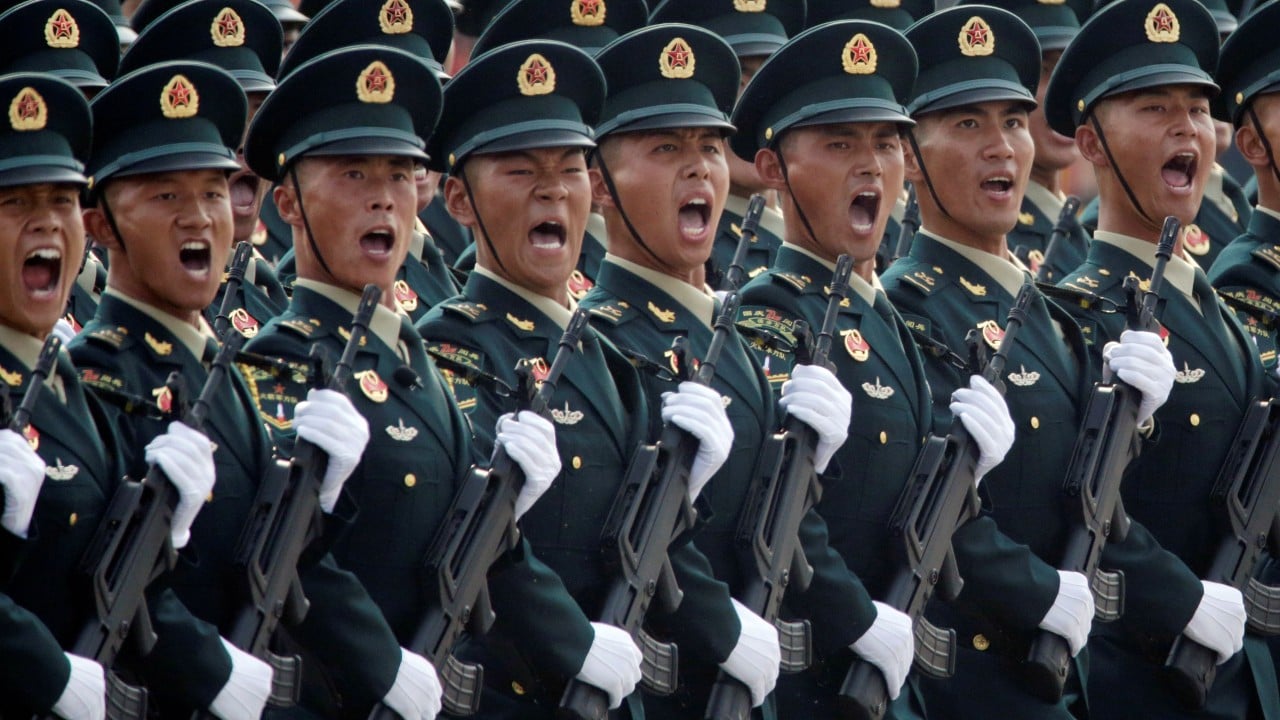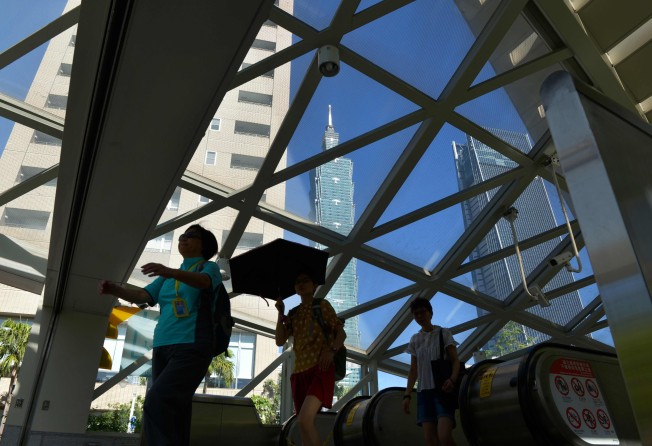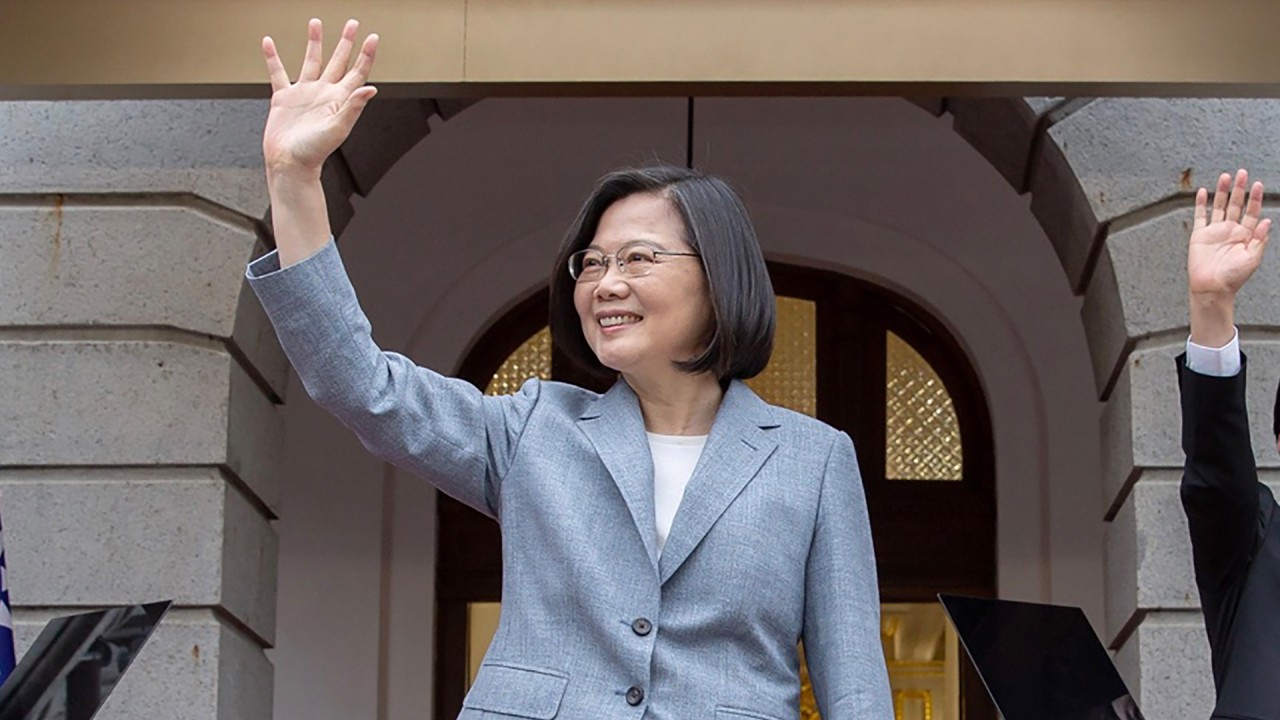
04:12
Are Xi Jinping’s China and Donald Trump’s US destined for armed conflict?

Taipei-based Bioteque Corporation has a sales office near Shanghai but never considered opening a factory in mainland China.
So when the 29-year-old medical equipment maker was looking to expand production, it told the Taiwan stock exchange in March it would invest NT$1.6 billion (US$53.4 million) in a science technology park an hour from its head office, creating 141 jobs at home.
The company picked the site in Taiwan’s Yilan County because the central government offered a rent break and doubled the normal land-use period to 40 years with the option to renew after that, said Peggy Chung, head of accounting.
“There was no consideration of mainland China because they offer no incentives,” Chung said. “So, if we can invest in Taiwan, of course we make that a priority.”

04:12
Are Xi Jinping’s China and Donald Trump’s US destined for armed conflict?
Bioteque is among a growing number of Taiwanese investors bypassing mainland China and instead expanding at home.
China’s lure as the world’s factory is losing its shine for Taiwanese companies, which are increasingly put off by rising costs, trade war tariffs on US-bound exports and supply chain vulnerabilities exposed by the coronavirus pandemic.
“If you haven’t gone, you’re not going,” said John Brebeck, senior adviser at the Quantum International investment consultancy in Taipei.
Since January, the Taiwanese government has approved 188 investment projects from domestic companies that are worth NT$164.9 billion (US$5.5 billion) and will create 13,411 jobs, according to its InvesTaiwan office.

02:11
Tsai Ing-wen inaugurated for second term as Taiwan’s president
Twenty-three companies, 12 per cent of the total, chose to expand in Taiwan over an existing offshore base, including the mainland. Their projects are worth NT$48.7 billion (US$1.6 billion).
Domestic companies with existing offshore investments have proposed 39 per cent of new projects for Taiwan since the start of 2018, InvesTaiwan data showed.
For companies like Daxin Materials, which produces material for display panels, Taiwan’s talent, resources and government help to control costs have made investing in the self-ruled island a much more appealing proposition than the mainland, said finance department manager Hung Bao-hui.
The 14-year-old Taichung-based firm received approval this year for a NT$1.3 billion (US$43.4 million) factory, which will employ 100 people, in Taiwan because the island is sheltered from supply chain breaks, InvesTaiwan said.
“We’re always gradually adding to production here to meet client capacity needs,” Hung said, adding the company’s two main clients were Taiwanese.
IC Star Group had already ruled out China when it got the go-ahead this year to build a second precision equipment factory south of Taichung by 2021.
“In principle, it’s got easier to invest here,” said management office worker Doreen Yeh, adding workers were easy to find.
Taiwanese were some of earliest offshore investors in the mainland, where they began setting up plants in the 1980s to take advantage of low costs and a common language.
But manufacturers must now evaluate production risks that have been highlighted by factory closures due to the pandemic earlier this year, said Ma Tieying, an economist with DBS Bank.
“The Covid-19 crisis exposes the vulnerability of the regional manufacturing supply chain, which heavily relies on China for upstream sourcing and downstream production,” Ma said.
“Taiwanese firms will find it necessary to design a more resilient and diverse supply chain after the Covid-19 crisis, reducing the reliance on China and moving part of the production back to Taiwan or to other emerging markets.”
Trade tensions between China and the United States are adding to anxiety for some investors weighing the mainland against Taiwan. US tariffs on US$360 billion worth of goods affect companies of any origin that ship from the mainland.
Taiwan was the world’s top beneficiary of “trade diversion effects” linked to the China-US trade war, the United Nations Conference on Trade and Development said last year. The UN agency estimated a windfall of US$4.2 billion.
A total of 480 companies have been approved for investment projects locally instead of expanding offshore since January 2018. Their combined investment in the island will top NT$1 trillion (US$33.4 billion) and create nearly 82,555 jobs, according to InvesTaiwan.
A Taiwanese company setting up production in the mainland would now probably intend to sell finished goods to Chinese consumers or export to Europe rather than target the US market, Brebeck said.
“Previously, most Taiwanese investors offshore would cluster in mainland China. Since the Sino-US trade war, Taiwanese investors have experienced that they must diversify production bases and invest in multiple places to reduce risk and turn a crisis into opportunity,” InvesTaiwan said.
Taiwan government incentives “help at the margins” when companies consider expanding locally, Brebeck said, offering deals on land use and waiving restrictions on movement of assets from offshore.
InvesTaiwan expects more reshoring of capital from midyear as coronavirus outbreaks overseas lure businesses home. Taiwan has reported just 441 coronavirus cases, with no local transmissions, for more than a month. Taiwan has reported just 443 coronavirus cases, with no local transmissions, for more than 50 days.